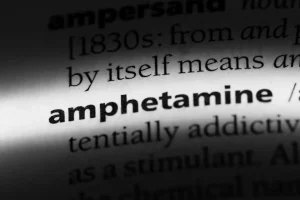
However, acetaldehyde is still highly toxic and can significantly increase the risk of cancer. Yogurt and kefir have been shown to improve lactose tolerance, and that yogurt in particular has live and active cultures that break down lactose, acting similarly to the lactase enzyme. And these aren’t the only reasons the two dairy foods are lactose-friendly. When you have an allergic reaction to alcohol, your immune system is overreacting to an ingredient in the drink. If you have other allergies, you are more likely to have an allergy to alcohol, according to research from Switzerland.

“By being intentional, you could help build up your tolerance to lactose-containing foods.”
As a result, acetaldehyde builds up in their body, leading to uncomfortable symptoms. This accumulation can cause facial flushing, nausea, rapid heartbeat, and headaches – the telltale signs of alcohol intolerance. The primary cause of alcohol intolerance is a genetic mutation that affects the production of enzymes responsible for alcohol alcohol intolerance metabolism, mainly aldehyde dehydrogenase (ALDH2). A deficiency or inactivity of ALDH2 leads to the accumulation of acetaldehyde, triggering various intolerance symptoms. Other factors, such as certain medications or health conditions, can also interfere with the normal function of ALDH2, causing intolerance symptoms or mimicking intolerance reactions.
- The cause of alcohol-related sickness may develop for various medical reasons, such as an intolerance to alcohol or another ingredient present in the beverage.
- In addition, people with alcohol intolerance have a higher risk of certain cancers like throat cancer and Alzheimer’s disease if they drink.
- If the allergic reaction is more severe, people may require epinephrine, also known as an EpiPen.
- People with this condition usually experience swelling in the lymph nodes in areas including the neck, armpits, or groin.
- Furthermore, excessive alcohol use is a consistent risk factor for blood or brain vessel blockage diseases, such as coronary artery disease and cerebrovascular disease.
- Even if we handled alcohol well in early adulthood, this can change as we age.
What Can Cause an Alcohol Intolerance?

Being intolerant to alcohol is different from being allergic to alcohol, and it’s not life-threatening. However, it’s important to know whether you have alcohol intolerance because it can put you at greater risk for alcohol-related health conditions. Symptoms of an alcohol allergy include rashes, itchiness, swelling and severe stomach cramps. Allergy symptoms are often more painful and uncomfortable than alcohol intolerance symptoms.
- Management of ALD may include pharmacotherapies such as baclofen and naltrexone, tailored to individual patient needs and liver function.
- If left untreated, an allergic reaction can quickly become worse.
- One bad night doesn’t necessarily mean you are intolerant to alcohol.
- With this condition, you have an inactive or less-active form of the chemical that breaks down alcohol in your body.
- In some cases, reactions can be triggered by a true allergy to a grain such as corn, wheat or rye or to another substance in alcoholic beverages.
- The alcohol flush reaction is less common in people of other ethnicities, but it still affects up to eight percent of the world population overall, or about 560 million people.
Alcohol and Cialis: Risks, Side Effects & Treatment
Our board-certified providers can perform an exam, evaluate your symptoms, and test you for allergies to create a personalized treatment plan. Consulting with a healthcare provider is essential for an accurate diagnosis. A sudden inability to handle alcohol may be of concern for various reasons. Some people may become worried about a more significant medical reason for not being able to drink like they used to, while others may feel social or career-related pressures to drink.

Treatment

However, this term is both potentially offensive and not entirely accurate. The alcohol flush reaction is less common in people of other ethnicities, but it still affects up to eight percent of the world population overall, or about 560 million people. Get comprehensive information on hundreds of whole allergens and allergen components. While there is no cure for this condition, avoiding alcohol can help you stay symptom-free and avoid an uncomfortable reaction. When alcohol enters our system it impacts our motor skills, memory, and emotional responses. This is why even a small amount of alcohol impacts our judgment and ability to drive, while a moderate amount can impair our ability to form memories.
Alcohol allergies quiz
- Sulfur dioxide is another closely related chemical that can trigger reactions in some people.
- For individuals with severe cases of alcohol intolerance, effective medical management is crucial to mitigate symptoms and prevent complications.
- If alcohol intolerance is caused by something else, such as the use of a medication, then addressing the underlying cause may eliminate alcohol intolerance.
- Ask your doctor for more information about your diagnosis and treatment options.
It is similar to any other allergy and intolerance that develops later in life. If you usually handle alcohol fine, remember that many factors can influence your tolerance on a day-by-day basis! Factors such as when you last ate, the type and amount of food you had, when you last exercised, and the medications you’re currently taking can all alter alcohol’s effects. It’s also possible to be allergic to proteins in filling agents, such as egg or shellfish, which manufacturers sometimes use to remove fine particles from alcoholic beverages.
- They may also discuss possible medications for their reactions, such as antihistamines.
- Symptoms of a food intolerance usually start within a few hours of eating but can sometimes take days to appear.
- In severe reactions or if symptoms persist, seeking medical attention is crucial.
- No drug will help you avoid the symptoms of alcohol intolerance or lessen your cancer risk.
Symptoms
To begin, alcohol intolerance is a genetic condition characterized by the inability to process alcohol efficiently. Dr. Steven explains that there are two enzymes involved in metabolizing ethanol, an intoxicating agent that exists in different amounts across wine, beer, and spirits. “Alcohol and sulphites tend to evaporate away during cooking, so the potential for intolerances is certainly reduced,” Dr Watts says. However, if you’re allergic to an ingredient found in certain alcoholic drinks, dishes which contain that drink are not safe to eat. Do you suffer from terrible hangovers or feel unwell after drinking just a small amount of alcohol? Sue Quinn explores the telltale signs of intolerances and allergies, the difference between them and what to do if you think you’re affected.
Get the world’s most fascinating discoveries delivered straight to your inbox. Quitting alcohol completely can be a challenge, but there are more ways to do it than ever before. At the very least, you should limit alcohol as much as possible, especially if it’s making you unwell. Post-viral fatigue (PVF) is fatigue that first starts during a viral infection but persists after the virus has gone. Scientists are not sure what causes PVF, though immune cells called cytokines likely play a role. Alcohol contains metabolites, which are substances produced during metabolism.
Don’t miss your chance!
We publish material that is researched, cited, edited and reviewed by licensed medical professionals. The information we provide is not intended to be a substitute for professional medical advice, diagnosis or treatment. It should not be used in place of the advice of your physician or other qualified healthcare providers. It should not be used in place of the advice of your physician or other qualified healthcare provider. However, people with alcohol intolerance often have a genetic variant that causes ALDH to work less effectively.
Alcohol Allergies
The medication epinephrine, commonly called an EpiPen, can help treat a severe allergic reaction. In some cases, reactions can be triggered by a true allergy to a grain such as corn, wheat or rye or to another substance in alcoholic beverages. Although not a true allergy, in some cases, what seems to be alcohol intolerance might be your reaction to something in an alcoholic beverage — such as chemicals, grains or preservatives. Combining alcohol with certain medications also can cause reactions. Everlywell offers health and wellness solutions including laboratory testing for wellness monitoring, informational and educational use. With the exception of certain diagnostic test panels, list available here, the tests we offer access to are not intended to diagnose or treat disease.
Leave a Reply